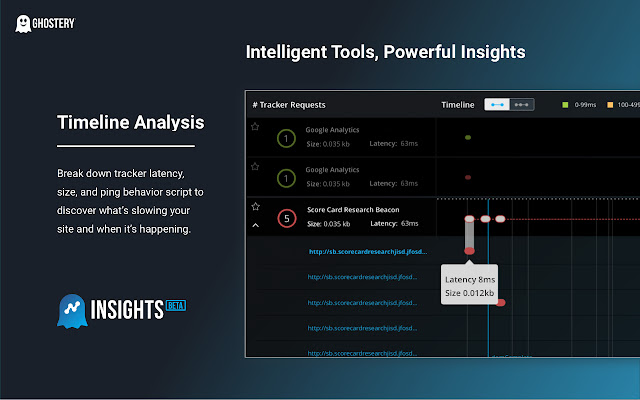
KYC, AML and Onboarding for Crypto Prop Firm Traders
"Trade smart. Trade secure. Trade for the future."
If you’ve ever walked into the world of proprietary trading with crypto, you’ll know it’s not just about reading charts or chasing the next bull run. Behind every funded trader and every prop desk, there’s a process—sometimes tedious, sometimes protective—that shapes who gets to play in the arena. We’re talking about KYC (Know Your Customer), AML (Anti-Money Laundering), and the whole onboarding ritual that crypto prop firms have to get right.
This isn’t the glamorous side of trading. There’s no adrenaline rush like catching a breakout, no dopamine spike from watching your unrealized P&L climb. But without these guardrails, you’re not just risking capital—you’re risking the very existence of your operation. And for traders stepping into a prop firm setup that spans forex, stocks, crypto, indices, options, and commodities, the rules are becoming the lifeline for sustainable growth.
KYC: More Than Just ID Checks
A lot of new traders see KYC as a drag—upload your passport, selfie verification, proof of address—it feels like the opposite of crypto’s decentralized spirit. But in the prop trading world, KYC isn’t about surveillance; it’s about trust.
Firms need to know who they’re backing. Imagine you’re running a desk with traders from Dubai, London, and São Paulo. If payouts get frozen because one account’s origin looks suspicious, everyone suffers. Solid KYC helps prop firms avoid these operational nightmares, making sure withdrawals run smooth and compliance officers sleep at night.
Case in point: a prominent crypto prop firm in Singapore once had to suspend payouts for two weeks due to a single unverified trader. That’s two weeks of lost momentum in a highly volatile market. Since tightening their KYC process, their onboarding-to-trading timeline dropped from 10 days to 48 hours—compliance made them faster, not slower.
AML: Staying Ahead of the Regulators
Anti-money laundering isn’t just a banking thing anymore—crypto desks are under the microscope. Regulators across the EU, US, and Asia are watching where the money flows, how it’s reported, and who touches it along the way.
For prop firms, AML compliance means flagging unusual patterns before they become headlines. A trader suddenly shifting from low-volume BTC scalps to multi-million stablecoin transfers? That’s a red flag. Smart firms use transaction monitoring that blends rule-based triggers with AI-driven anomaly detection—spotting potential trouble without drowning in false positives.
This is where the edge comes in. Modern AML tools integrate directly into the trading platform, so you don’t have to halt trading for “checks”—you see alerts in real time, handle them, and stay in the game.
Onboarding: The Silent Conversion Funnel
Onboarding is the unsung hero in prop trading growth. It’s where a curious prospect turns into a funded trader. Done right, it’s smooth, intuitive, and quick. Done wrong, they’ll vanish to some competitor with a cleaner sign-up flow.
A winning onboarding process for crypto prop traders blends:
- Clear steps: no guessing on what docs you need, no hidden extra hoops.
- Speed: automated KYC verification beats manual checks every time.
- Trader-tailored UX: mobile-first, clean dashboards, instant funding notifications.
Think of it like getting into the driver’s seat of a race car—you want seatbelts fastened and engine ready, not a four-hour inspection before you even start.
Why This Matters for Multi-Asset Traders
Prop firms that support forex, stocks, crypto, indices, options, and commodities are a different beast. The compliance framework has to flex across multiple markets, each with its own quirks. A forex desk might care about currency flow reporting, while a crypto desk handles wallet tracing. The advantage of integrated KYC/AML is that it unifies this across all assets.
This means a trader experienced in crude oil futures can pivot into ETH swings without hitting another wall of verification. That’s agility, and in prop trading, agility is alpha.
The Macro Shift: Decentralized Finance Meets Regulation
The rise of DeFi promised a borderless trading world—no intermediaries, no paperwork. Reality check: regulators are catching up. Stablecoins, decentralized exchanges, on-chain derivatives… they’re now part of global AML mapping.
Smart prop firms aren’t fighting it—they’re building hybrid models. On-chain execution wrapped in compliant KYC onboarding. It’s not “pure” DeFi, but it’s a bridge between the freedom traders want and the safeguards institutions require.
The Future: Smart Contracts and AI Trading
Looking forward, trading desks will lean harder into automation. Imagine onboarding that’s handled entirely by a smart contract—KYCs verified via decentralized identity protocols, AML checks trigger contract locks if suspicious activity appears, all without human bottlenecks.
AI-driven trading isn’t just about signals—it’s about compliance intelligence. Think algorithms that adapt to shifting regulatory landscapes, auto-routing trades through compliant channels. Prop trading will be faster, smarter, and more secure—and it’ll win trader trust.
The Takeaway
In this game, speed matters, discipline matters, but compliance wins longevity. For crypto prop firm traders, embracing KYC and AML is like wearing armor—you may never need it for a friendly spar, but when the fight turns real, it keeps you standing.
"Your talent deserves a trusted arena. We make sure the gates stay open."
If you want, I can also help you craft a landing page version of this with high-conversion headlines and call-to-actions so it feels ready to publish for a prop trading firm’s website. Do you want me to reframe it that way? That would make it punchier for turning readers into sign-ups.